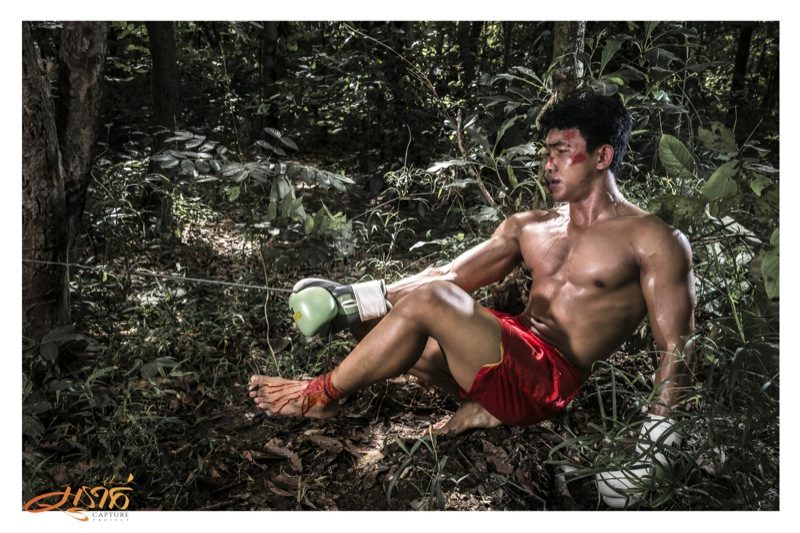A man dressed in red boxing shorts sits on the forest floor, his face grimacing in pain as the wire of a poaching snare winds tightly around his bloodied ankle, biting into his skin.
The photograph is one of a provocative series, “The Capture Project,” created by international conservation organizations and Cambodian artists to highlight the threat of snares to Southeast Asian wildlife.

Every year, criminal gangs set millions of forest snares hoping to catch wildlife and sell their meat.
In the exhibition, which opens today at Aeon Mall in Phnom Penh, 10 photographs show Cambodian models with simulated injuries, meant to evoke the trauma a snared animal might experience. They are shown in a variety of poses and dressed in the clothes of different professions, from a doctor to a footballer to an Apsara dancer.
“We want people to understand that whether it is big or small animals, they are just as valuable as any human beings from any kind of social class,” Dou Pothlimata, the project’s principal artist, said in a news release.
The event will be at the mall for one day before moving to Nuk Cafe IFL in Tuol Kok for one week.
Also on show is a large artistic elephant woven from colorful snares found across the country, which tells the real-life story of Chhouk, a baby elephant that lost his front left foot to a snare in Northeast Cambodia in 2007. Fitted with a prosthetic foot, he made a full recovery and now lives at Phnom Tamao Wildlife Rescue Center, cared for by the Wildlife Alliance.
Thomas Gray, director of science at the conservation NGO, said that despite many protected areas in Cambodia, the number of snares is still very high due to weak laws and high demand for wild meat.
Ms. Pothlimata, also known as Apple Love, said she hopes the powerful photographs will get the message across.
“The focus of the event is to show to Cambodian people the consequences of eating wildlife meat,” she said. “People are not aware that so many animals die or are injured from snares set in our forests.”




